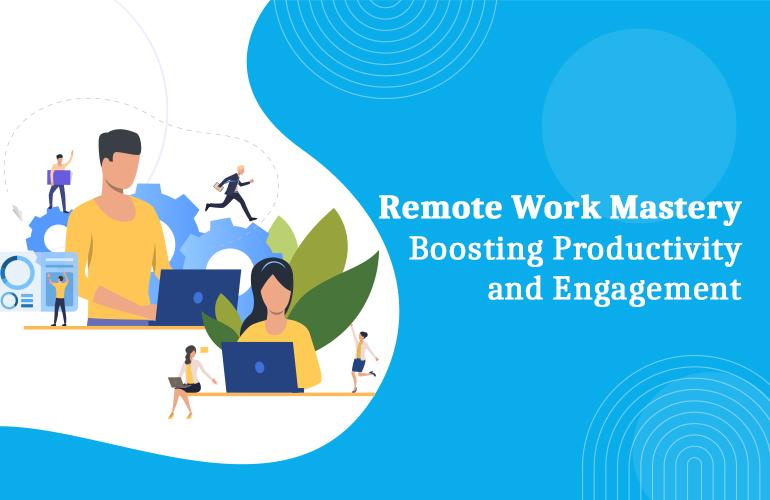In today's evolving work landscape, remote work has become the norm for many individuals and organizations. This guest post aims to provide practical tips and strategies for mastering remote work, focusing on enhancing productivity and maintaining strong engagement. By implementing these best practices and leveraging the right tools, remote workers can thrive in their roles and contribute to the success of their organizations.
The Rise of Remote Work
Remote work has witnessed remarkable growth, with a 159% increase since 2005 and approximately 4.7 million employees opting for remote work in the United States alone. This shift is driven by various factors, including the benefits it offers. Remote work provides employees with increased flexibility, enabling them to balance their personal and professional lives more effectively. Additionally, it eliminates the need for lengthy commutes, allowing individuals to save time and allocate it towards productive activities. The rise of remote work signifies a significant shift in how we approach work, emphasizing the importance of adapting to the changing landscape.
Establishing a Productive Remote Work Environment
Creating an environment conducive to productivity is crucial for remote work success. Here are essential steps to follow:
- Set up a dedicated workspace free from distractions, allowing for focused and uninterrupted work.
- Ensure a reliable internet connection and have access to the necessary tools and software to support remote work requirements.
- Establish a routine with regular work hours, breaks, and allocated time for personal activities to maintain structure and a healthy work-life balance. By implementing these practices, remote workers can optimize their productivity and create a harmonious work environment that supports their professional and personal needs.
Effective Communication and Collaboration
Effective communication and collaboration are vital for remote teams to thrive. Here's how to achieve it:
- Utilize communication tools like video conferencing, instant messaging, and project management platforms to foster seamless collaboration.
- Establish clear channels for information sharing and decision-making, ensuring everyone is on the same page.
- Encourage regular check-ins, virtual team meetings, and open communication to maintain strong connections and facilitate collaboration. By implementing these strategies, remote teams can overcome the distance barrier and work together efficiently, fostering a sense of unity and achieving collective goals.
Managing Time and Priorities
Effective time management is crucial for remote work success. Here's how to excel at it:
- Set clear goals and prioritize tasks to stay focused and meet deadlines efficiently.
- Employ time management techniques like the Pomodoro Technique to boost productivity and manage time effectively.
- Leverage productivity tools and apps that assist in tracking time and managing tasks more efficiently. By mastering time management and prioritization, remote workers can easily optimize their productivity, maintain a healthy work-life balance, and accomplish their professional goals.
Maintaining Work-Life Balance
Achieving work-life balance is essential for remote workers' overall well-being. Here are some key practices to ensure a healthy balance:
- Set clear boundaries between work and personal life by defining specific working hours and taking regular breaks to prevent burnout.
- Engage in self-care activities like exercise, mindfulness, and hobbies to promote physical and mental well-being.
- Communicate expectations with family members or roommates to minimize distractions and create a conducive work environment. By prioritizing work-life balance, remote workers can enhance their productivity, happiness, and overall quality of life.
Promoting Engagement and Team Bonding
Building a strong sense of engagement and camaraderie among remote teams is crucial. Here are effective strategies to foster connection and team bonding:
- Organize virtual team-building activities and social events to cultivate a sense of belonging and camaraderie.
- Encourage open communication beyond work-related topics to foster personal connections and build relationships.
- Recognize and celebrate individual and team achievements to boost morale, motivation, and team spirit. By promoting engagement and team bonding, remote teams can enhance collaboration, productivity, and overall job satisfaction.
Conclusion
Mastering remote work requires a proactive approach and the implementation of effective strategies. By following the best practices outlined in this guest post, remote workers can enhance their productivity, maintain a healthy work-life balance, and foster strong engagement. Embracing remote work opportunities and adapting to its unique challenges will ensure long-term success and satisfaction in the remote work environment.
